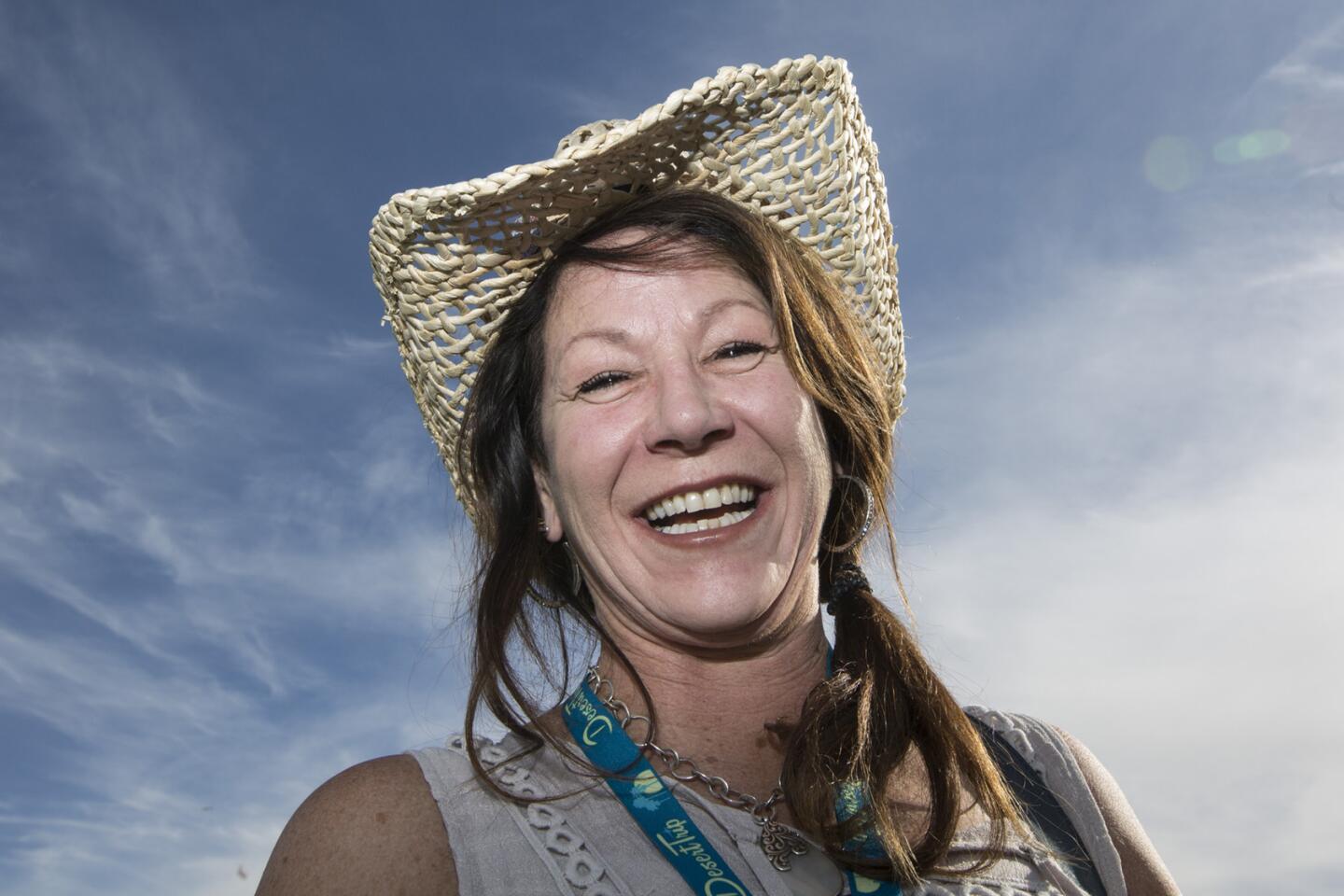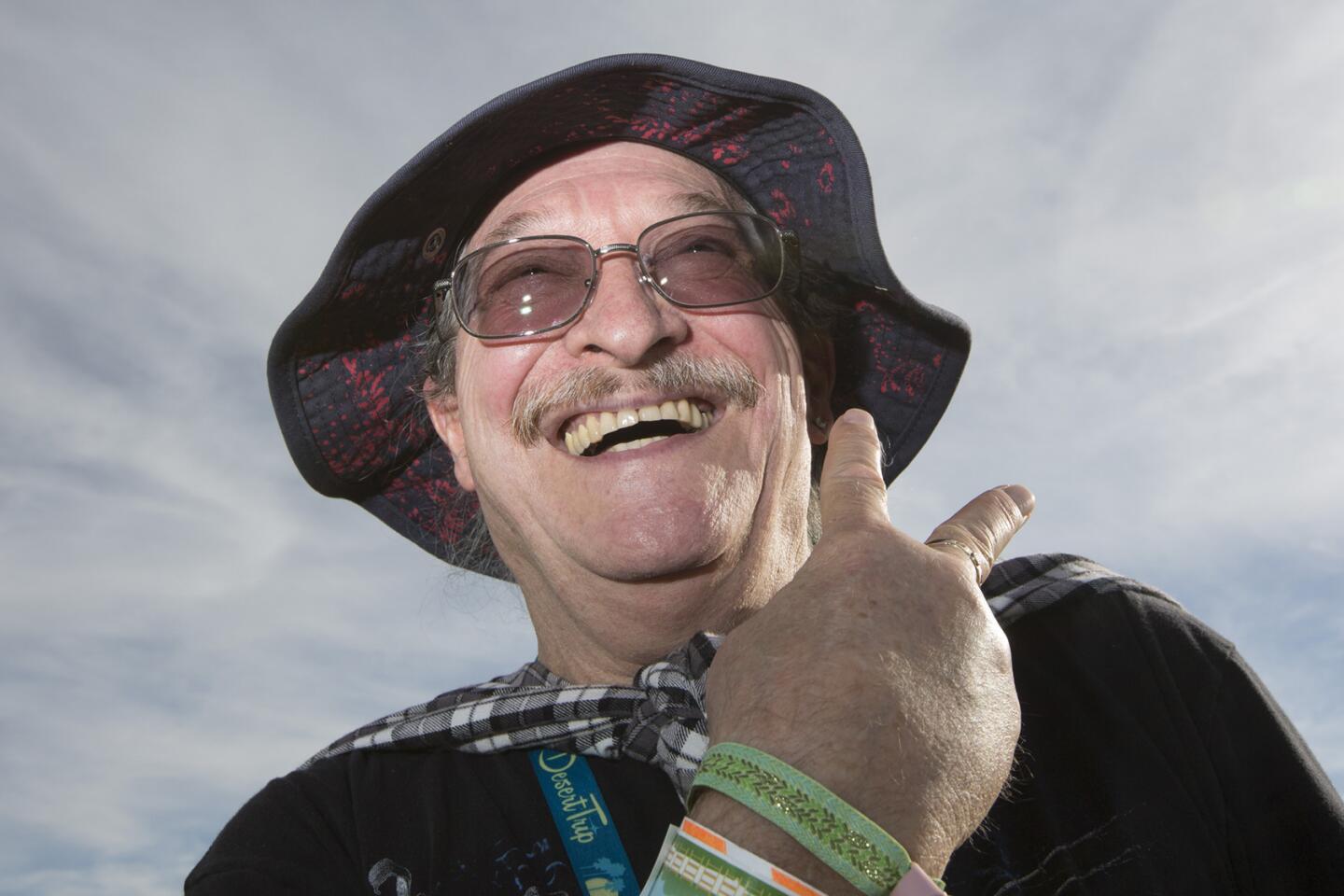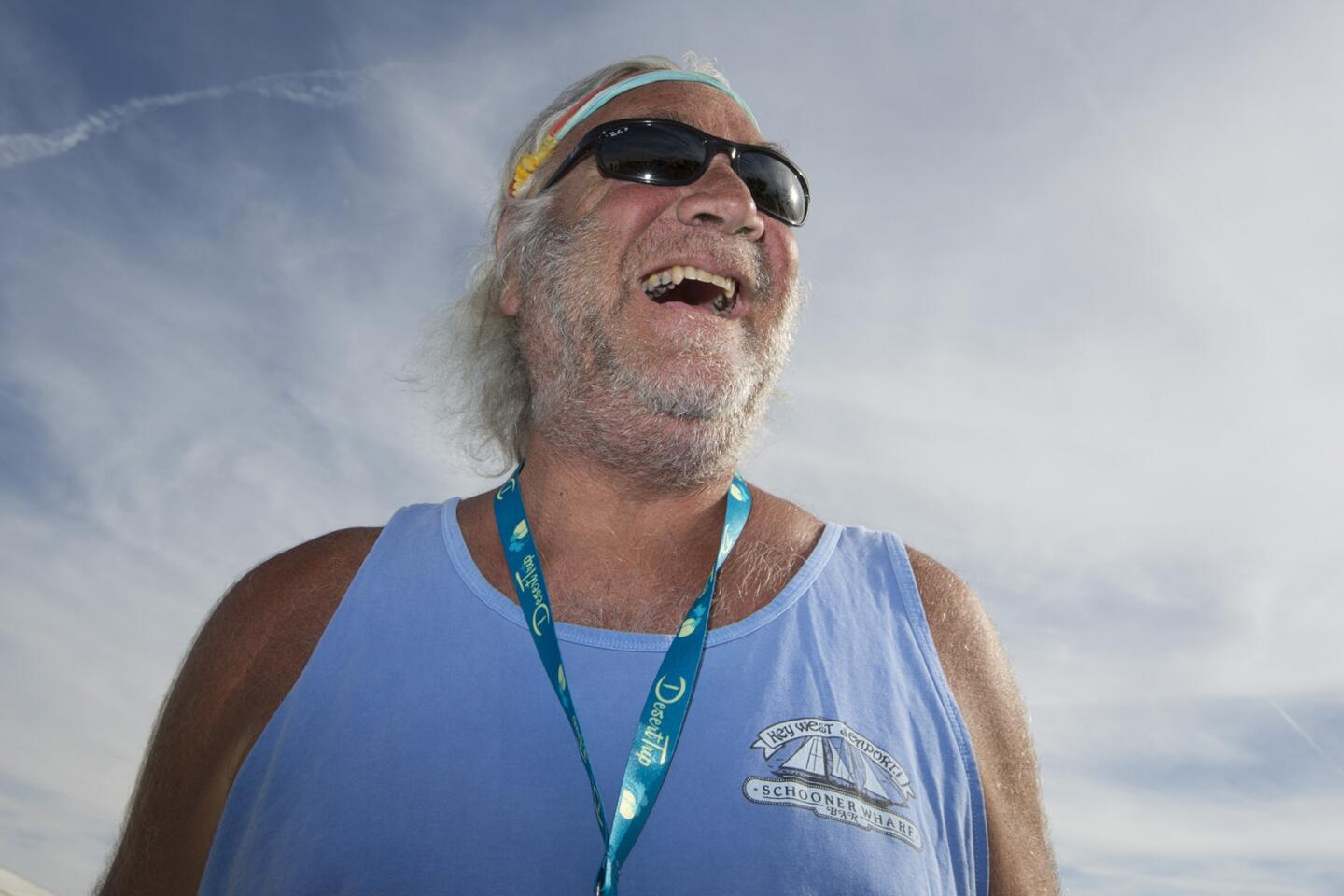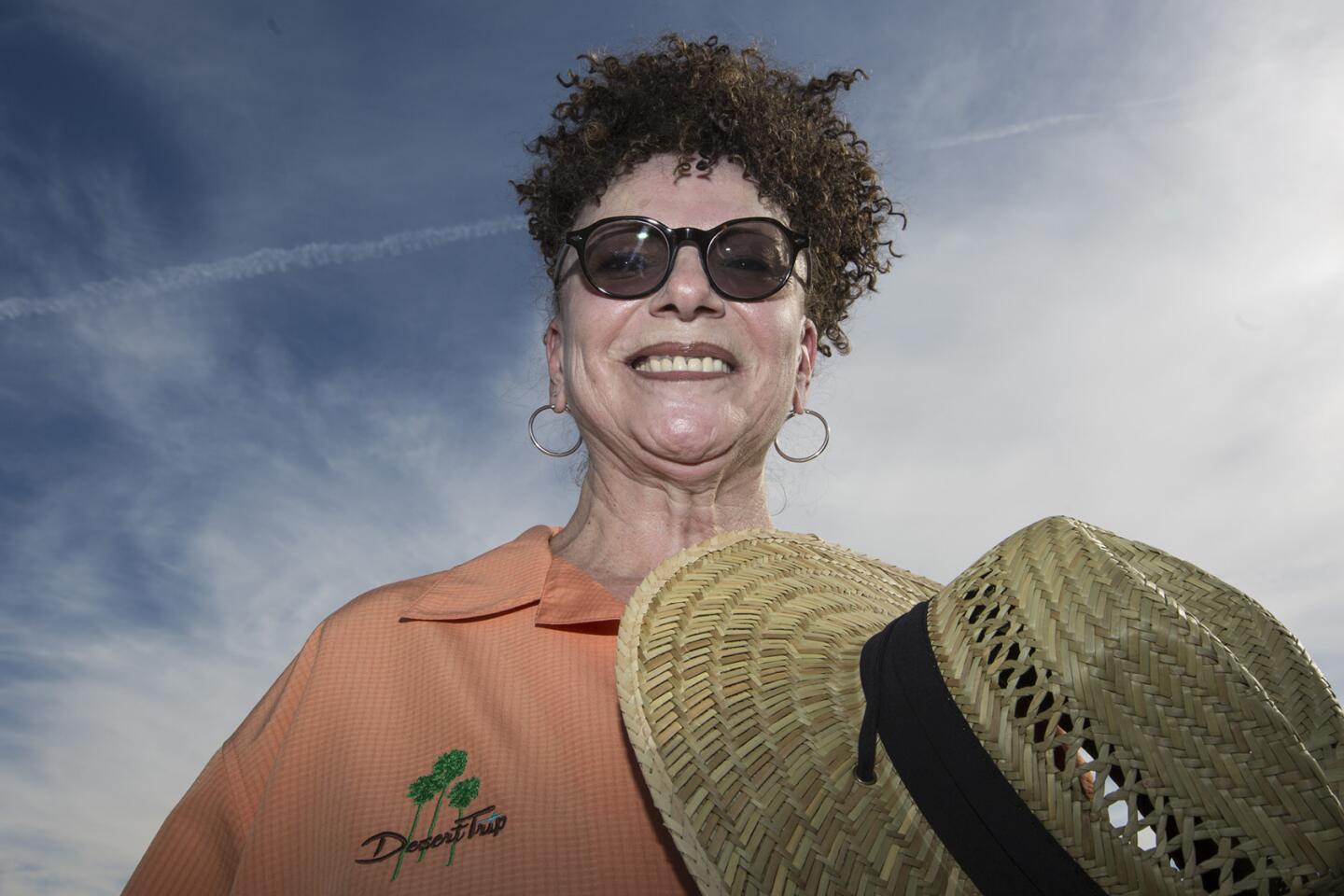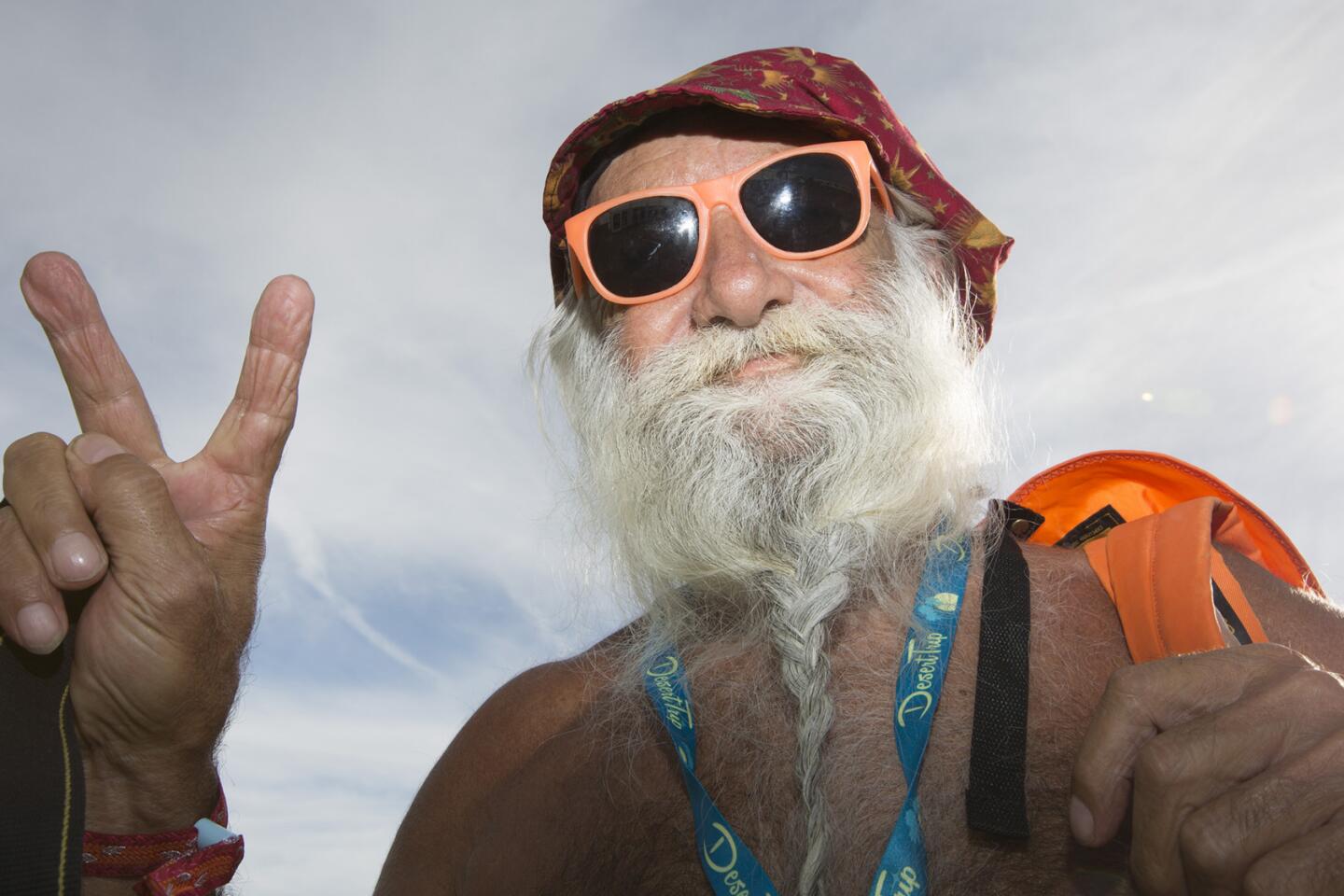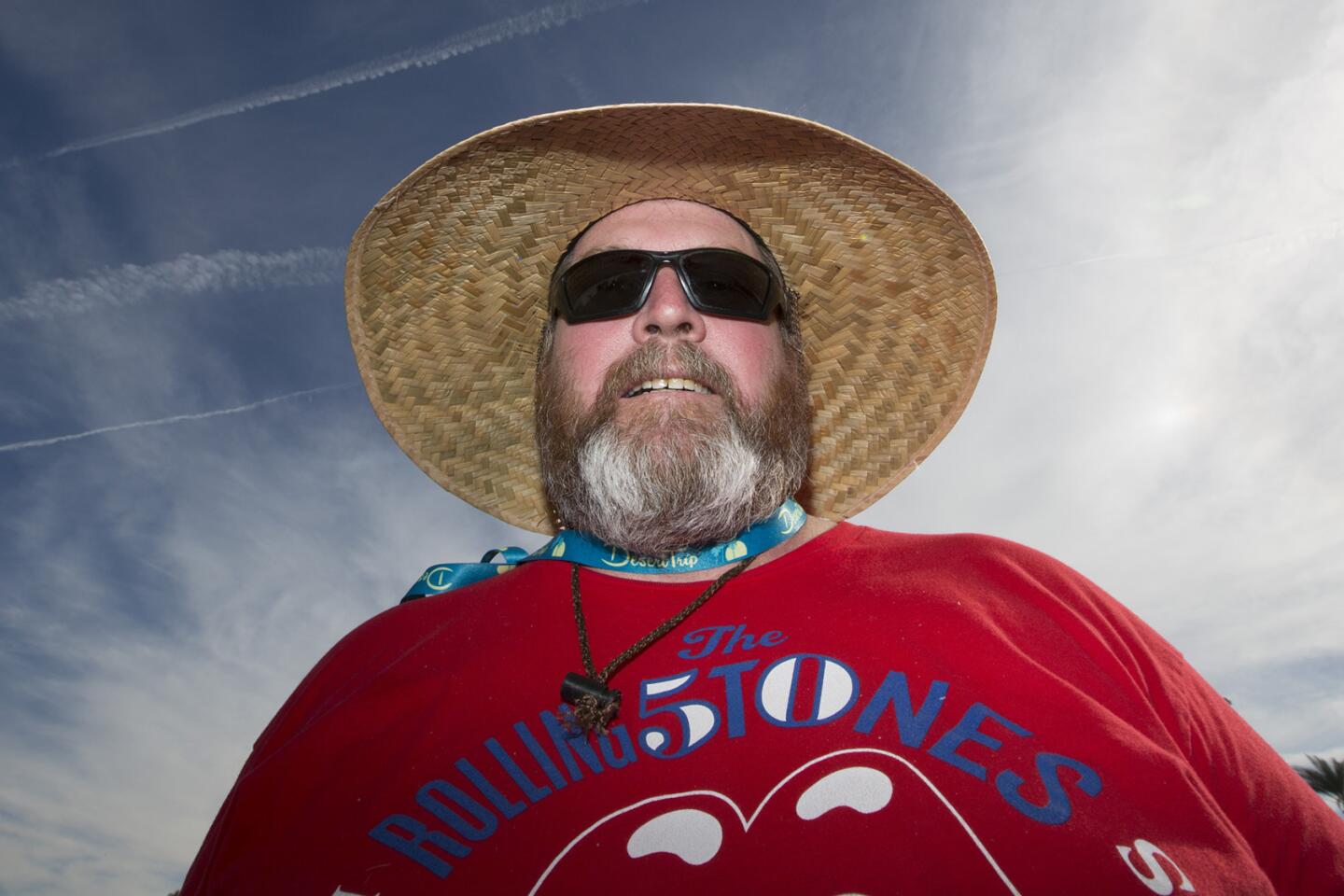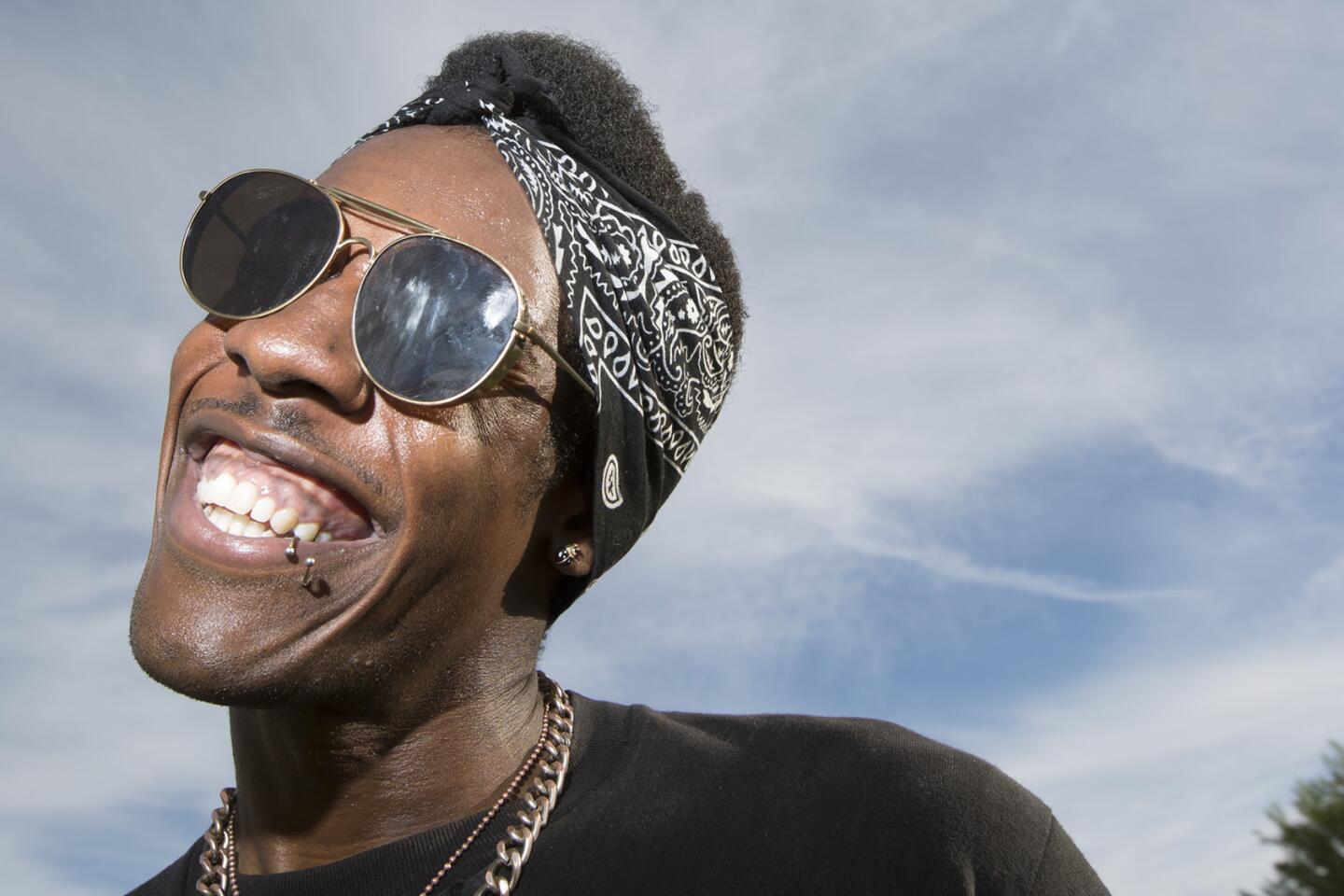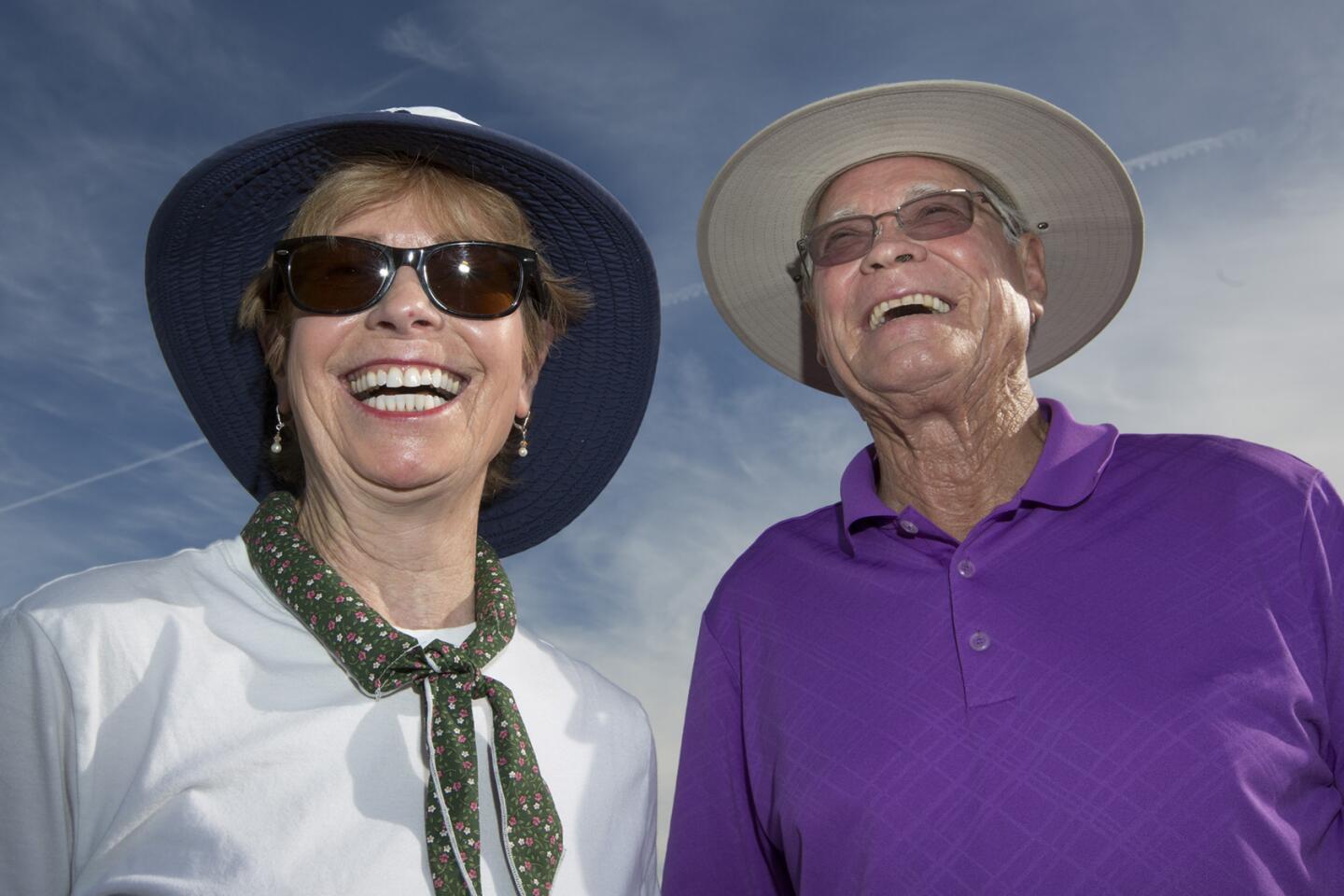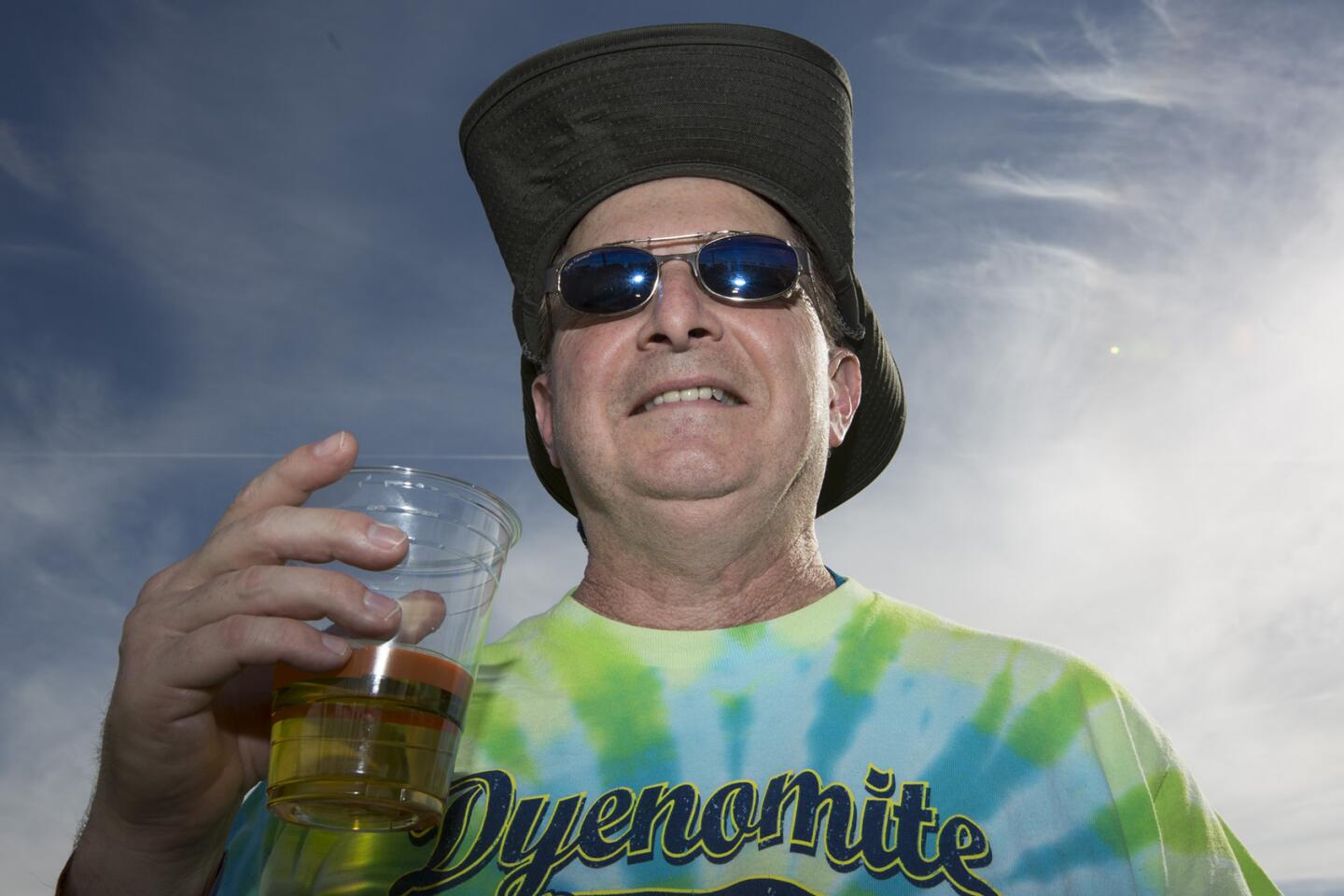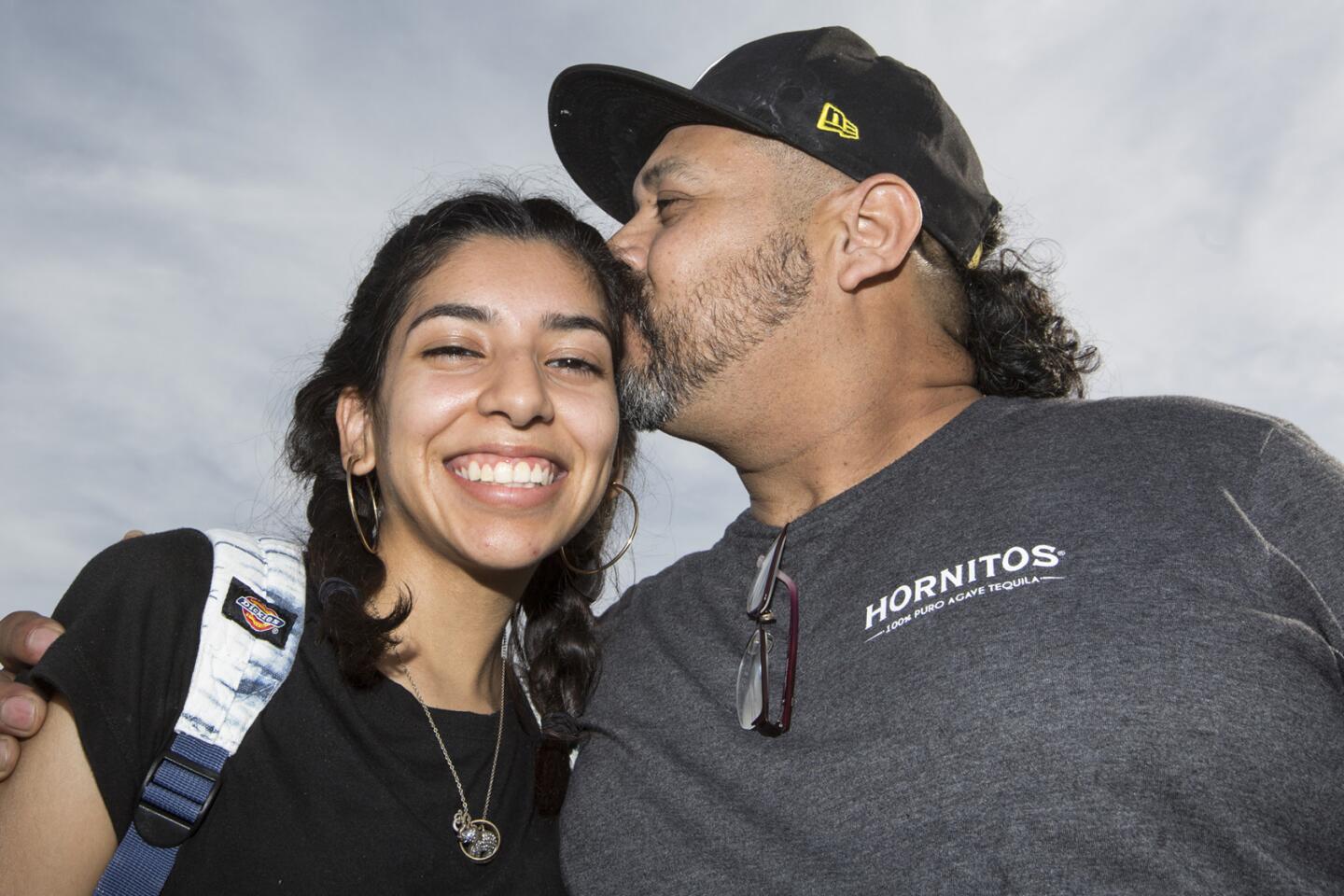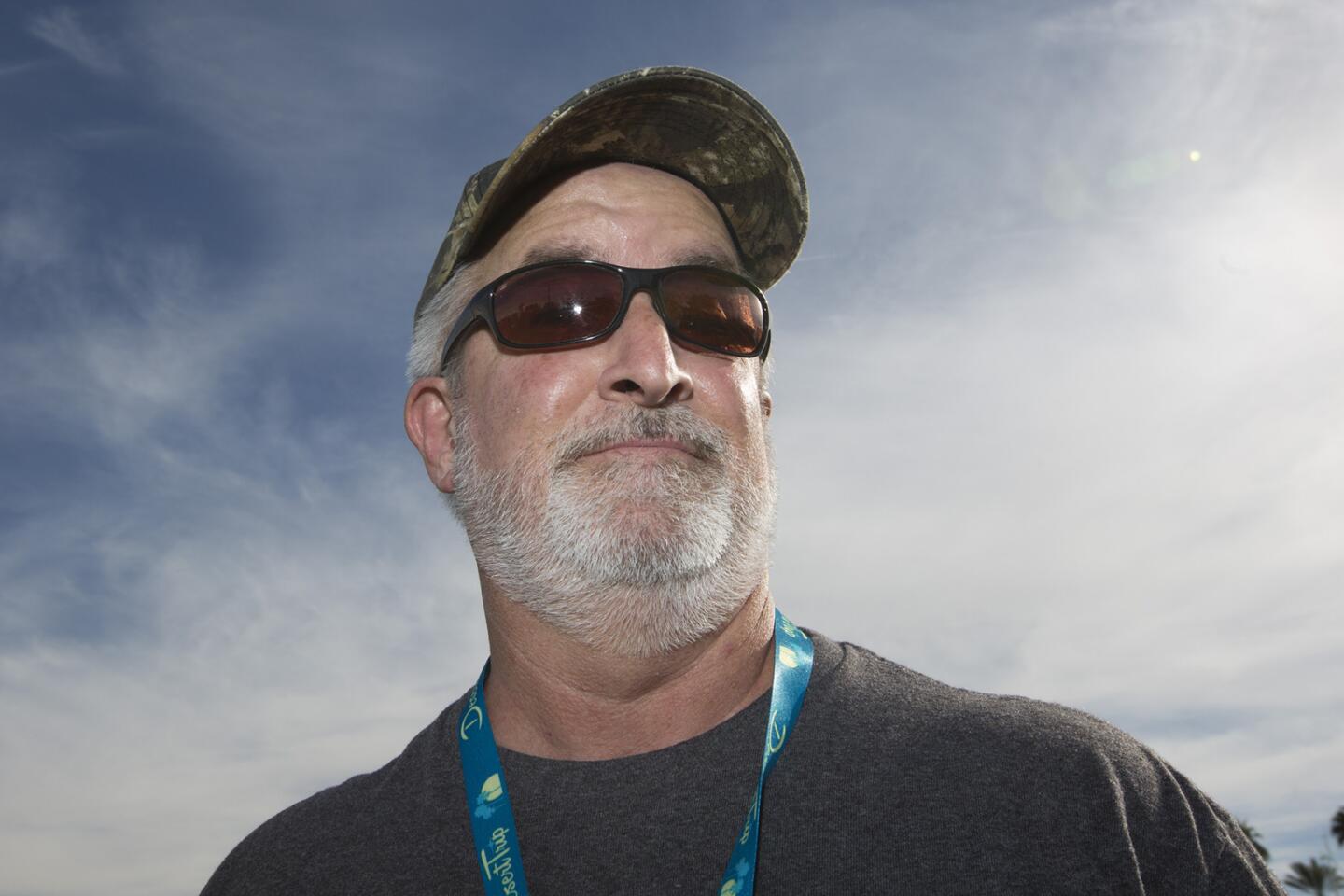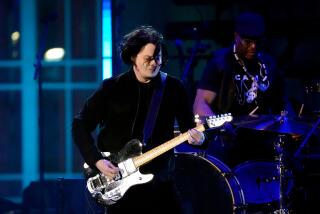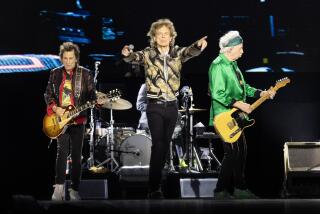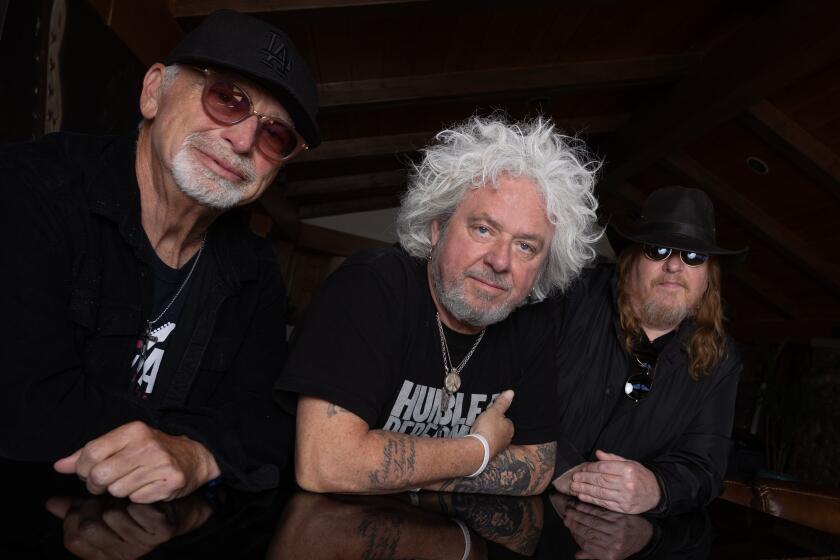Boomers and millennials are taking their seats at Desert Trip with high hopes of seeing rock history
Reporting from Indio, Calif. — There was no shortage of wrinkled Anglo men with graying ponytails dotting the grounds of the Empire Polo Field as fans filed in Friday afternoon for the opening weekend of Desert Trip, the hyped-up summit meeting of rock music titans Bob Dylan, the Rolling Stones, Paul McCartney, the Who, Neil Young and Pink Floyd’s Roger Waters.
But to think of this event only as a gathering of rock’s original baby boomer audience as they navigate their golden years discounts the cross-generational and multicultural appeal each act has developed, over careers collectively tallying more than 300 years.
“I’ve been hearing this music since I was a kid,” said Christian Dinh, a 24-year-old Vietnamese American who’d just flown in for the weekend from Pensacola, Fla., escaping the wrath of Hurricane Matthews as it bears down on his home state. “I just love rock ’n’ roll. I love new music too, but l also love the old music. This is music that people are still going to be listening to 100 years from now.”
I’m really interested to see what Bob does for this crowd. Will he play the hits? I can’t wait.
— Billionaire Steve Bing at Desert Trip
Brothers Alvaro and Fernando Obregon, 28 and 25, respectively, journeyed north from their home in Tijuana for the show, with Waters’ performance on Sunday at the top of their priority list. Both have seen Waters, the Who, the Rolling Stones and McCartney multiple times, but said it will be their first exposure to Dylan and Young.
“I think music moves the world,” Alvaro said, “and this music is from a time where so many important things were going on worldwide.”
A 17-year-old from Rialto, Miki Stevens, credited her mother, Wendy, 52, for igniting her passion for the classic rock that’s center stage this weekend.
“I think this music is better than today’s music,” Miki said while strolling an expansive exhibit of vintage photos of the show’s featured acts, a draw both for the images themselves and for the air-conditioned surroundings in the tent that offered respite from the mid-90s heat still blazing outside.
Goldenvoice, the same company that produces the Coachella and Stagecoach festivals on the same grounds each spring, sold all 75,000 passes for both Desert Trip weekends within five hours of putting tickets on sale in May. The show is expected to gross about $160 million, making it the most lucrative music festival ever.
Although many fans are trekking to Indio in hopes of revisiting the glory days of rock music, the acts they’ve paid top dollar to see — up to $1,599 for the three-day passes providing admission to the pit directly in front of the massive stage — are still doing impressive business well into their golden years.
Since 2000, the Rolling Stones have grossed more than $1.1 billion with their periodic tours, according to Pollstar, the concert-industry-tracking publication. Paul McCartney has racked up $761 million, Roger Waters has pulled in $592 million, followed by Dylan ($293 million), the Who ($200 million) and Neil Young ($153 million).
That’s a collective $3.1 billion in ticket sales.
“If you’re going to get tickets to see Roger Waters or Paul McCartney or the Rolling Stones, you’re going to pay a hefty amount anyway,” said Aimee Sloan, a 35-year-old from Culver City whose parents fall into the age bracket of the Baby Boomers expected to make up the majority at Desert Trip. She paid $399 for a three-day pass, which puts her in the general admission section behind the pricier reserved seat areas.
“If I could afford to get into the pit,” referring to the area in front of the stage where fans have paid $1,599 to get up close and personal, “I would have.”
Billionaire Steve Bing, wearing a tie-dyed rainbow-colored T-shirt, said he’s intrigued to hear what Dylan will play. “I’m really interested to see what Bob does for this crowd,” Bing said about 90 minutes before the bard of rock music was scheduled to play the festival’s opening notes. “Will he play the hits? I can’t wait.”
“I think these artists embody why music festivals started,” said Sloan, who has attended the Coachella Music and Arts Festival twice, as well as Bonnaroo in Tennessee, the relatively new Life is Beautiful festival in Las Vegas and “lots” of other festivals.
“The music they have is inspiring, it’s different, it’s the music that started all of the other offshoots of [rock and pop] music,” she said. “I think they represent a different time, when music was there to bring people together, to inspire people. … That’s what all these newer festivals are trying to do, and it’s what these original bands accomplished in the first place.”
Costa Mesa real estate developer Tim Cromwell, 60, is more in the central Desert Trip demographic being targeted by billboards lining the 10 Freeway to Indio, touting the latest archival album releases by Led Zeppelin and Fleetwood Mac — Desert Trip 2017 contenders? — along with another advising passersby of the call letters of the Coachella Valley’s classic-rock radio station.
Cromwell’s first concert experience was seeing the Who at the Long Beach Arena in 1971. He said he’s also seen the Rolling Stones and Bob Dylan (“a couple of times”) and deems the Eagles “about the best live band I’ve ever heard.”
“My one wish when I was in college was to see a Beatles reunion concert,” he said. “I was going to pay whatever it took to get tickets — heck, it might have even been $100 a ticket!” he said with a smile. “It’s amazing what we pay these days.”
Actually, Cromwell benefited from the surfeit of tickets on the resale market. After being shut out when Desert Trip tickets first went on sale, he picked up two single three-day passes earlier this week on StubHub. They originally sold for $399, he said, but he paid about half that amount.
That’s a reflection of fans’, and brokers’, expectation they’d be able to make a killing snapping up Desert Trip tickets and then reselling them at a profit. Instead, StubHub listed available seats in the $699 and $999 reserved sections for half or even one-third that price.
The secondary market service listed some 700 tickets available for the first weekend and more than 5,000 for next weekend’s encore performance.
Another fan, 34-year-old San Diego resident Shaun Hunsaker, told The Times this week he’d bought extra $1,599 pit passes in hopes of turning them around at a profit to offset the price of his own pit admission, but took a loss of almost $1,200 after discovering the best he could get was $400. “We got completely hosed,” he said.
Another draw for those who have been to Coachella, or Stagecoach, is the grounds of the Empire Polo Field itself.
“Being at Coachella is epic,” Sloan said. “I’ve been to festivals everywhere and none of them compare to the the Polo grounds. You’ve got the mountain winds, the sun on your face, you can lay down anywhere and take a nap if you’re tired. You can’t do that when you go to the more urban festivals. You can’t lay down on the street [in Las Vegas] at Life is Beautiful. At Bonnaroo there’s mud everywhere — I wouldn’t want to do it. That [Empire Polo Field] is really a magical place.”
Added veteran concert promoter, record executive and talent manager Jim Guerinot, who brought his wife and their four children to Desert Trip from their home in Laguna Beach, “If you tell me this is happening at Petco Park [in San Diego], I don’t have the same feel for it.”
Follow @RandyLewis2 on Twitter.com
For Classic Rock coverage, join us on Facebook
Also
‘Old-chella’? Whatever. The all-star lineup at Desert Trip proves you can still rock over 70
Desert Trip’s dream lineup and sky-high prices are making history—and upending rock fest tradition
Talkin’ ‘bout their generation: What Desert Trip says about the classic rock mindset
More to Read
The biggest entertainment stories
Get our big stories about Hollywood, film, television, music, arts, culture and more right in your inbox as soon as they publish.
You may occasionally receive promotional content from the Los Angeles Times.
